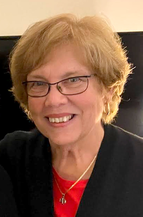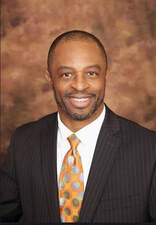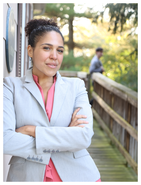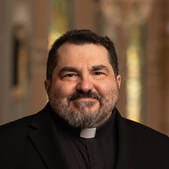At the Crossroads Speaker and Discussion Series
Donna J. Markham OP, Ph.D., ABPP
“The Humanitarian Work of the Church at the Southern Border: What Is and Is Not Going On"
“The Humanitarian Work of the Church at the Southern Border: What Is and Is Not Going On"

The complexity of US immigration policy and confusion about how NGOs assist migrants has created consternation and questions in the minds of many. Sr. Donna Markham will lead a conversation on how the faith community is addressing the needs of migrants and engaging in advocacy efforts on their behalf. She will candidly share how migrants entering the US are cared for, the challenges they are facing, and the efforts taken to assist them. Stories of current refugees and migrants will illustrate these issues.
Donna Markham is an Adrian Dominican Sister and immediate past-president and CEO of Catholic Charities USA (CCUSA). During her ministry at CCUSA, she led the implementation of national strategic initiatives directed toward alleviating the suffering of vulnerable people in the US. She has traveled extensively to the US border to support efforts to care for migrants and refugees. Recently, she traveled to Ukraine to meet with church and civic leaders to explore how best to assist Ukrainian refugees arriving in the US. She has served as a member of the USCCB Committee on Migration for the past nine years.
Donna Markham is an Adrian Dominican Sister and immediate past-president and CEO of Catholic Charities USA (CCUSA). During her ministry at CCUSA, she led the implementation of national strategic initiatives directed toward alleviating the suffering of vulnerable people in the US. She has traveled extensively to the US border to support efforts to care for migrants and refugees. Recently, she traveled to Ukraine to meet with church and civic leaders to explore how best to assist Ukrainian refugees arriving in the US. She has served as a member of the USCCB Committee on Migration for the past nine years.
John G. Igwebuike, J.D., Ph.D.
“L-I-S-T-E-N: One of the Greatest Skills Rarely Taught"
“L-I-S-T-E-N: One of the Greatest Skills Rarely Taught"

This presentation introduces participants to one of the greatest skills rarely taught: effective listening. God has given us two ears and one mouth so that we can listen more than we talk. Listening is a gift we give to ourselves, our God, and our fellow human beings. Bible scholars note that Jesus's most oft-repeated phrases implored each of us to L-I-S-T-E-N. Yet, among the major verbal communication modalities—writing, reading, and speaking—the art, skill, and practice of listening is the least taught, least considered, and least understood. This reflection invites us to tune out the noise, turn off the distractions, and tune in to divine opportunities to L-I-S-T-E-N.
Dr. John G. Igwebuike is the Director of School Culture—Diversity, Equity, and Inclusion at Saint Ignatius College Prep in Chicago, Illinois. He is a thought leader, focus-group facilitator, and consultant to schools, companies, and universities in the unique area of effective listening skills and its role in fostering inclusion, belonging, and interpersonal justice.
Dr. John G. Igwebuike is the Director of School Culture—Diversity, Equity, and Inclusion at Saint Ignatius College Prep in Chicago, Illinois. He is a thought leader, focus-group facilitator, and consultant to schools, companies, and universities in the unique area of effective listening skills and its role in fostering inclusion, belonging, and interpersonal justice.
Marisa G. Franco, Ph.D.
“Why Friendship Matters: Building Social Connections and Community"
“Why Friendship Matters: Building Social Connections and Community"

The need for connection is fundamentally human and underlies everything—our health, our motivation, our work, and our sense of who we are. And yet, we are in the middle of a loneliness epidemic and our communities are disconnected. In this presentation, Dr. Marisa G. Franco will share insights into the science of connection and why belonging makes individuals and communities more resilient. She will share skills and hands-on tips for initiating and maintaining collaboration, community, and friendship.
Dr. Marisa G. Franco holds a Ph.D. in Counseling Psychology from the University of Maryland and works as a professor there. She writes for Psychology Today and has been a featured psychologist in The New York Times, Scientific American, NPR, and Good Morning America. Dr. Marisa G. Franco takes a data-driven look at community and connection, and speaks to private companies, universities, and non-profit organizations all over the country about finding and keeping new friends as adults, making (work) friends in a digital-only world, and overcoming loneliness.
Dr. Marisa G. Franco holds a Ph.D. in Counseling Psychology from the University of Maryland and works as a professor there. She writes for Psychology Today and has been a featured psychologist in The New York Times, Scientific American, NPR, and Good Morning America. Dr. Marisa G. Franco takes a data-driven look at community and connection, and speaks to private companies, universities, and non-profit organizations all over the country about finding and keeping new friends as adults, making (work) friends in a digital-only world, and overcoming loneliness.
Michael R. Simone, S.J., Ph.D.
"Advent Everyday: How to Pay Attention When Jesus Arrives in Daily Life"
"Advent Everyday: How to Pay Attention When Jesus Arrives in Daily Life"

Through the use of scripture, theology and narrative, Fr. Simone will share tips for finding Jesus in everyday life.
Michael R. Simone is a Jesuit priest of the USA Midwest Province and is associate pastor of Old
St. Patrick’s Church in Chicago. Fr. Simone is a contributing editor at America magazine where he has also served as a regular columnist. Prior to coming to Old St. Patrick’s, Fr. Simone worked at Boston College School of Theology and Ministry, where he taught Scripture and
preaching, served on the core faculty of spirituality studies, and was chair of the Education
Policy Committee. Fr. Simone has served as a priest at Gesu parish in Detroit and St. Leonard’s and St. Cecilia’s parishes, both in Boston. He frequently gives retreats and talks on biblical and spiritual themes to parishes, religious communities, and diocesan gatherings.
Michael R. Simone is a Jesuit priest of the USA Midwest Province and is associate pastor of Old
St. Patrick’s Church in Chicago. Fr. Simone is a contributing editor at America magazine where he has also served as a regular columnist. Prior to coming to Old St. Patrick’s, Fr. Simone worked at Boston College School of Theology and Ministry, where he taught Scripture and
preaching, served on the core faculty of spirituality studies, and was chair of the Education
Policy Committee. Fr. Simone has served as a priest at Gesu parish in Detroit and St. Leonard’s and St. Cecilia’s parishes, both in Boston. He frequently gives retreats and talks on biblical and spiritual themes to parishes, religious communities, and diocesan gatherings.
More Information
|
Location
September 27 and October 18 - Fellowship Hall, 625 W. Adams November 8 - Zoom Webinar December 13 - Hughes Hall, 700 W. Adams |
Time
All programs begin at 7:00 p.m. and end at 8:15 p.m.
At our in-person programs, the doors will open at 6:30 pm
for refreshments and informal gathering.
Please join us!
Program Fees
$10 per program or $25 for the entire series.
There is no fee for the November 8 webinar.
Parking
A limited number of free parking spaces for these programs are available after 6:00 pm in the parking garage adjacent to the 625 W. Adams Street building (entry is from Desplaines Street).
All programs begin at 7:00 p.m. and end at 8:15 p.m.
At our in-person programs, the doors will open at 6:30 pm
for refreshments and informal gathering.
Please join us!
Program Fees
$10 per program or $25 for the entire series.
There is no fee for the November 8 webinar.
Parking
A limited number of free parking spaces for these programs are available after 6:00 pm in the parking garage adjacent to the 625 W. Adams Street building (entry is from Desplaines Street).
